Life
Sign up for our newsletter
We summarize the week's scientific breakthroughs every Thursday.
-
 Ecosystems
EcosystemsSimple hand-built structures can help streams survive wildfires and drought
Building simple structures with sticks and stones — and inviting in dam-building beavers — can keep water where it’s needed to fight drought and wildfires.
-
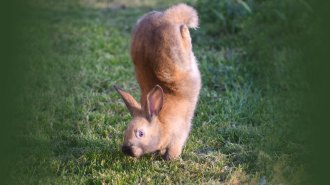 Animals
AnimalsA gene defect may make rabbits do handstands instead of hop
Mutations in a gene typically found throughout the nervous system rob rabbits of their ability to hop. Instead, the animals walk on their front paws.
-
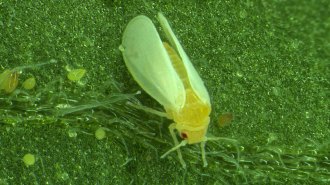 Life
LifeA plant gene may have helped whiteflies become a major pest
An agricultural pest may owe part of its success to a plant detox gene it acquired long ago that lets the insect neutralize common defenses.
-
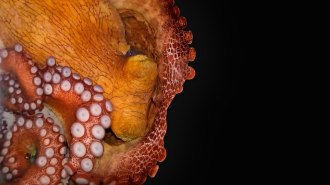 Animals
AnimalsOctopus sleep includes a frenzied, colorful, ‘active’ stage
Four wild cephalopods snoozing in a lab had long stretches of quiet napping followed by brief bursts of REM-like sleep.
-
 Animals
AnimalsDim lighting may raise the risk of a West Nile virus exposure
Dimly lit nights increased risk of West Nile virus exposure in chickens. Artificial light proved a better predictor of risk than population or paving.
-
 Animals
AnimalsWhy do sea turtles, penguins and sharks sometimes just swim in circles or spirals?
Tracking devices recorded the loops and spirals of 10 marine species. In some cases, scientists have good guesses for why; other times it’s baffling.
By Susan Milius -
 Genetics
Genetics‘The Code Breaker’ tells the story of CRISPR pioneer Jennifer Doudna
In his latest book, Walter Isaacson chronicles the discovery of CRISPR and delves into the ethics of gene editing.
-
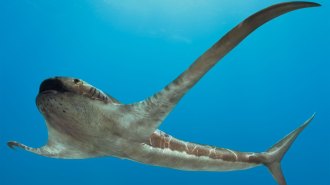 Paleontology
PaleontologyAn ancient shark’s weird fins helped it glide like a manta ray
Nicknamed eagle shark, the newly discovered ancient creature achieved underwater flight 30 million years before the first rays.
-
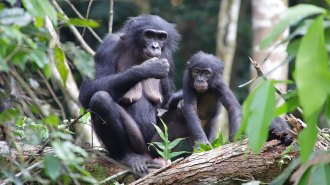 Animals
AnimalsTwo bonobos adopted infants outside their group, marking a first for great apes
Female bonobos in a reserve in the Congo took care of orphaned infants — feeding, carrying and cuddling them — for at least one year.
-
 Health & Medicine
Health & Medicine50 years ago, researchers treated chronic pain with electricity
In 1971, doctors eased chronic pain by sending electrical impulses to the spinal cord. Fifty years later, improved techniques help paralyzed people walk.
-
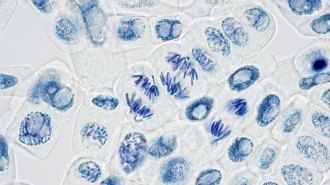 Life
LifeTwo new books investigate why it’s so hard to define life
For centuries, scientists have struggled to define what it means to be alive. ‘What Is Life?’ and ‘Life’s Edge’ explore the question.
-
 Earth
EarthPhosphorus for Earth’s earliest life may have been forged by lightning
Lightning strikes can supply one of life’s essential elements, long thought to be delivered by meteorites billions of years ago.